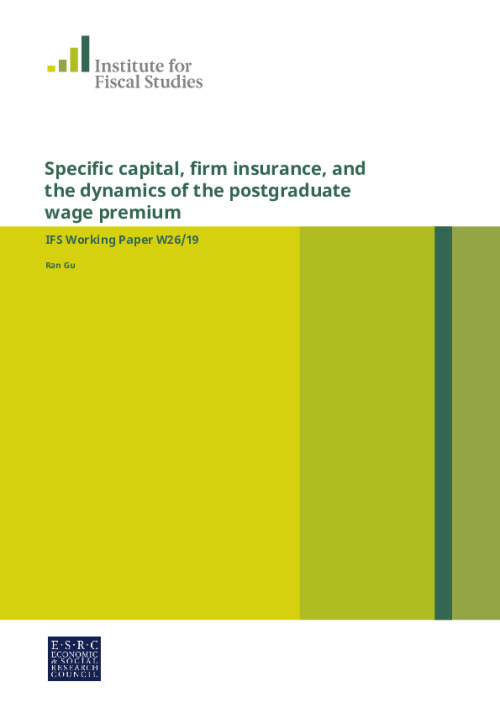Postgraduate degree holders experience lower cyclical wage variation than those with undergraduate degrees. Moreover, postgraduates have more specific human capital than undergraduates. Using an equilibrium search model with long-term contracts and imperfect monitoring of worker effort, this paper attributes the cyclicality of the postgraduate-undergraduate wage gap to the differences in specific capital. Imperfect monitoring creates a moral hazard problem that requires firms to pay efficiency wages. More specific capital leads to lower mobility, thereby alleviating the moral hazard and improving risk-sharing. Estimates reveal that specific capital explains the differences both in labour turnover and in wage cyclicality across education groups.
Authors

Research Associate University of Essex
Ran is an IFS Research Associate and a Lecturer at the University of Essex interested in understanding household and firm behaviour.
Working Paper details
- DOI
- 10.1920/wp.ifs.2019.1926
- Publisher
- The IFS
Suggested citation
Gu, R. (2019). Specific capital, firm insurance, and the dynamics of the postgraduate wage premium. London: The IFS. Available at: https://ifs.org.uk/publications/specific-capital-firm-insurance-and-dynamics-postgraduate-wage-premium (accessed: 30 June 2024).
More from IFS
Understand this issue

What has been happening with university finances?
27 June 2024

What does the Conservative's higher education announcement this week mean for apprenticeships and 'low-value' university courses?
1 June 2024

Scottish Budget 2024-25: IFS analysis
Policy analysis

The Conservatives and the Economy, 2010–24
3 June 2024

A decade and a half of historically poor growth has taken its toll
3 June 2024

High-skilled apprenticeships have high returns – but funding via a ‘crackdown’ on higher education courses is challenging
29 May 2024
Academic research

The impact of labour demand shocks when occupational labour supplies are heterogeneous
28 June 2024

Higher Education Access and Funding: challenges and policy options

Labour market inequality and the changing life cycle profile of male and female wages
15 April 2024
